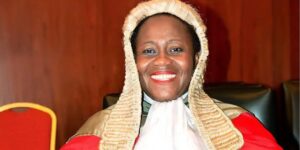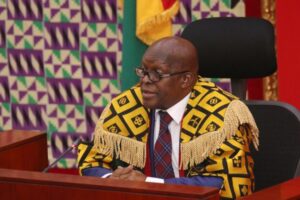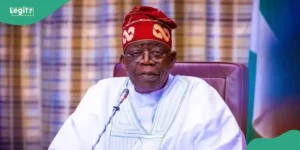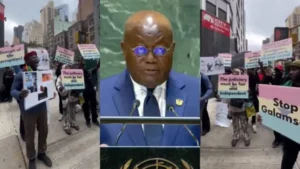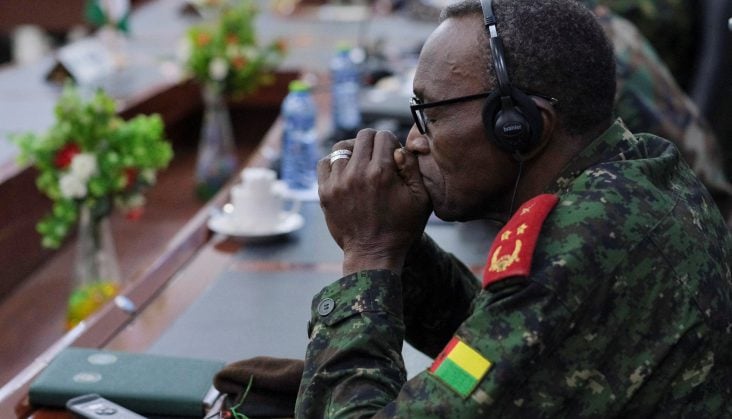
Despite political challenges, ECOWAS is attracting support as a model of regional integration, says Bissau-Guinean economics professor Carlos Lopes.
Carlos Lopes, a highly respected Bissau-Guinean economist, describes the Sahel’s situation as “a very worrying progression from Sudan to Maliâ€, following the 26 July coup against President Mohamed Bazoum in Niger.
As an advocate for development and good governance from the University of Cape Town, Lopes acknowledges the shift towards instability in another country within the region.
He also casts a critical eye on the sanctions imposed by the Economic Community of West African States (ECOWAS) against Niamey.
Following a summit in Abuja on 10 August, ECOWAS ordered the deployment of a military force to reinstate President Mohamed Bazoum while leaving room for negotiations. Do you have confidence in the possibility of a military intervention in Niger?
If such an intervention were to occur, ECOWAS would face two significant challenges.
First, it would suffer from a legitimacy deficit due to its inconsistent handling of various constitutional changes in Mali, Chad, Guinea and Burkina Faso.
Second, ECOWAS would encounter a capacity gap. Successful deployment would require substantial contributions from the regional powerhouse. However, Nigeria is struggling to maintain stability within its territory, particularly in the northern regions.
This indicates that its armed forces are not as robust as they once were.
An intervention is risky and negotiations are at an impasse. Why is the situation so complex?
The sub-region is witnessing a dual phenomenon – the involvement of numerous foreign powers (such as France, the US, Russia, Turkey and the Gulf states) alongside using the jihadist threat by military juntas to justify their power grabs under the guise of nationalist proclamations.
This dynamic results in a myriad of power struggles: jihadist groups, partly funded by Gulf interests, against legitimate authorities; a standoff between Western powers and Russia via the Wagner Group; the rivalry between Algeria and Morocco over mediation roles in the region.
Global geopolitics leads to proxy warfare on the West African stage, as already evident in Mali and Burkina Faso, with Niger potentially becoming another casualty.
How can this deadlock be overcome?
The previously functional peacekeeping doctrine has been rendered ineffective. It was built on the principle of subsidiarity, whereby the international community delegates crisis resolution responsibilities to the nearest regional organisation.
This subsidiarity has been exploited to serve regional power plays. So it must be abandoned in favour of involving more distanced actors.
Likewise, countries with vested interests in the region should be excluded. African nations with international standing, like South Africa, along with countries such as India, Canada and even Norway – which has effectively contributed to resolving tensions on the continent – could assume a mediation role.
Does this coup mark the decline of ECOWAS?
Despite its political challenges, ECOWAS continues to offer an array of appealing tools, particularly from an economic point of view.
Ensuring free movement of people within its member states, it remains a model of regional integration and an attractive project. Evidence of this can be seen in Mauritania’s closer ties with ECOWAS and Morocco’s interest to join.
What are your thoughts on the economic sanctions, including the suspension of trade and financial transactions, imposed on Niamey?
These sanctions are unprecedented in scale and far more radical than those imposed on Russia. It is akin to the central bank of Niger closing its doors. The country cannot endure such a situation for long.
Surviving in isolation is untenable, and the only two economies capable of providing assistance, Mali and Burkina Faso, are landlocked nations.
These sanctions should serve as a catalyst for a negotiated resolution.
What lessons can be drawn from this crisis in terms of governance?
Its consolidation hinges on two factors, the credibility of electoral systems and economic transformation.
First, it’s evident that manipulable electoral systems increasingly undermine the legitimacy of elections. To address this, an electoral integrity agency must be established, setting forth best practices and assessing the quality of each electoral process.
The second factor entails the growing impatience of Africa’s younger generation for improved living conditions is exerting increased pressure on governments.
The solution lies in investment to create opportunities and activities. In other words, preventing economic informality from fueling political turbulence.
